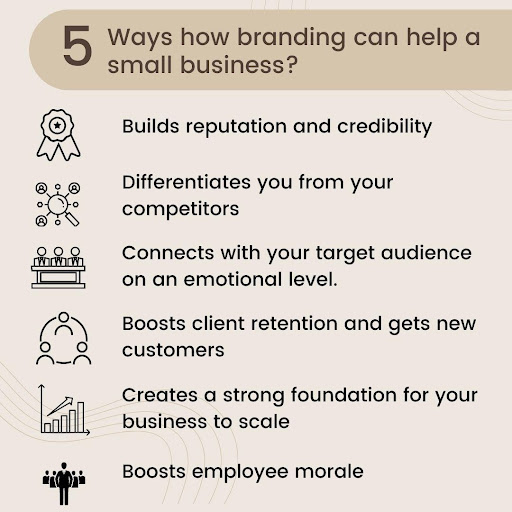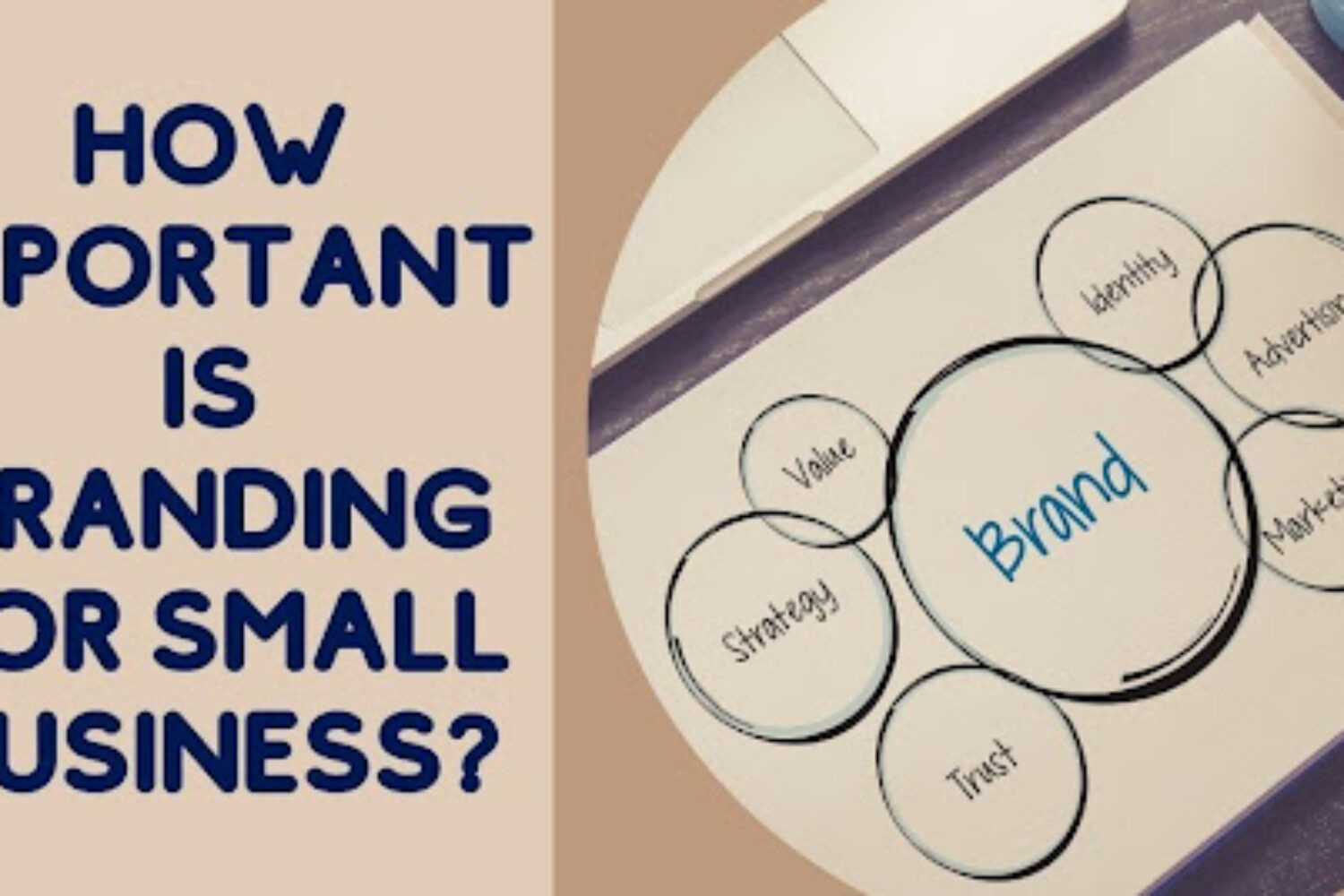Branding is the process of building the value proposition for your business and represents what the companies and its products stand for. Most people think that branding is only for large multinational brands such as Starbucks or Nike. However, that is not the case. Small businesses can leverage the power of branding to increase customer retention, business visibility, and reliability, which can help them boost the overall value of the company.
Does small business need branding?
Branding helps your target audience a clear sense of purpose about what your product/service is offering them. A majority of small enterprises design a logo and some basic packaging and then stop there. But, a brand goes much more than the visual aspects, such as the logo and the taglines. It involves tapping the customer’s perception about your product, including their expectations from the brand and the experiences they would like to have.
Still not convinced enough? Let’s dive in deeper to understand how important is branding for a small business.
How can branding help a small business?

Branding reflects your company’s vision, purpose, values, and overall personality as a customer would perceive it. As a result, branding delivers long-term gain and acts as a driving force for boosting customer engagement and retention.
Some of the benefits that highlight the importance of branding for small businesses include:
Builds reputation and credibility for your business
One of the primary reasons why your small business requires branding is that it helps your company build a reputation in the industry. In addition, customers feel more comfortable while dealing with an organized company, have a consistent voice, imagery, and other branding elements that ignite your target audience’s interests and give your small business authenticity and credibility.
Differentiates you from your competitors by highlighting your unique selling proposition
Customers nowadays have more choices now than before. Branding helps you save time throughout your sales cycle if your customers can tell what you are offering and benefit by using your products/services.
Boosts client retention and gets new customers
Branding helps you build a long-term relationship with your clients. Today, most customers like sticking to what they are familiar with, and branding strategies can help you constantly engage your customers, reminding them about you. It is also one of the most effective ways to get new customers by referral or word-of-mouth publicity. Branding can enable you to create a long-0lasting impression on the customer’s minds.
Connect with your target audience on an emotional level.
A brand represents your company’s deepest values, and if your customers can relate to these values you stand by, then your brand can serve as a constant reminder to your target audience to choose your product over others.
Creates a strong foundation for your business to scale
Branding goes much beyond the face value of your products and services. By working towards building a brand, you’ll be paving the path for your company’s long-term success by laying a solid foundation.
Boosts employee morale
Employees are much more motivated if they contribute towards a greater goal or mission rather than working for just a company. When employees resonate with the company’s purpose and why it exists, they are more likely to share that pride and reflect that enthusiasm towards achieving the overarching business goals.
Now that you know the importance of branding for small business owners, it is important to know that building a brand requires time, efforts, and commitments,
What’s the difference between running a business and creating a brand?
There is a distinction between company and brand. A business refers to an organization running day-to-day operations, processes, and managing employees to produce or manufacture goods and services. Creating a brand involves infusing your ideology and core beliefs into your marketing communications to enhance your business’s prestige and represent business authenticity.
For example, consider top multinational FMCG firms such as Unilever or Procter & Gamble. Unilever is a company with multiple iconic brands under its organization, such as Tresemme, Dove, Sunsilk, Lipton, Cornetto, and much more!
While marketing and branding are interconnected, let’s understand both aspects to get more clarity.
How are branding and marketing different?
The main purpose of marketing, as quoted by Peter Drucker, is to make selling superfluous. On the other hand, branding takes the long-term approach to shape your marketing practices and is not necessarily related to sales. Therefore, branding can be said to be the overall strategy to achieve marketing targets.
In a nutshell, branding decides your core message as a business, and marketing is the vehicle through which you carry that message to your target audience.
What comes first, branding or marketing?
Ideally, branding comes before marketing as branding comprises your promise as a business that you incorporate in your products and services through marketing communication.
While marketing evolves as per industry trends, business objectives, and changes in consumer behavior, your branding remains constant. Therefore, branding and marketing must go hand-in-hand to leave a distinct impression of your business in your customer’s minds.
Now that you understand the significance of branding, let’s look at some tips on Creating an effective branding strategy and What is a good branding strategy?
How can you turn your business into a brand?
Building a brand is a process that requires consistent efforts over a period. Brand success is defined by brand identity, brand strategy, and branding communication.
Here are some of the steps to build an effective branding strategy for your small business:
- Research about your target audience and identity what matters to them the most
- Create your brand identity by defining the overall vision, mission, and core values
- Select the visual elements for your brand, such as logo, colors, icons, packaging, and tagline.
- Evolve your brand into a personality by finalizing on-brand tone and voice
- Curate a loud, clear, and effective brand story by weaving in your brand identity, positioning, and brand personality.
Wrapping up…
So, now that you know the importance of branding for small businesses, the best way to get started is by framing a brand strategy. Unlock the growth potential of your small business with the help of branding today!
If you need any help creating sustainable branding strategies, let us know as we offer various branding services in Pune.
Read more about how you can build a brand on social media in this article.

